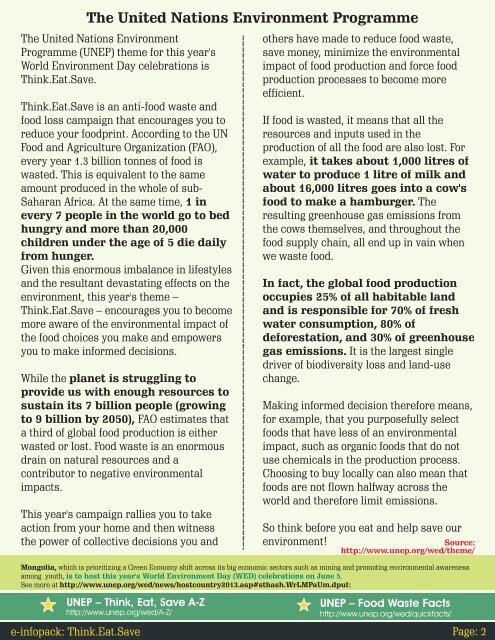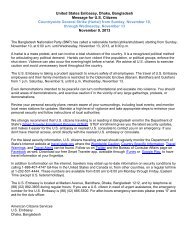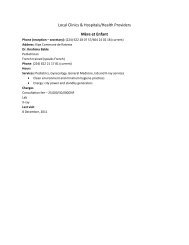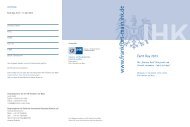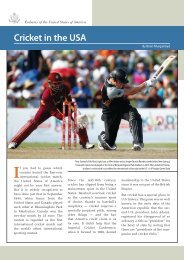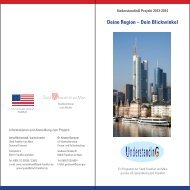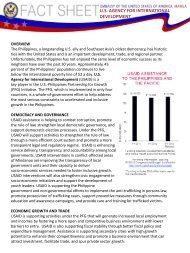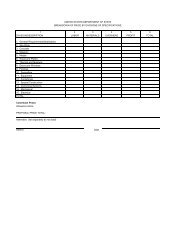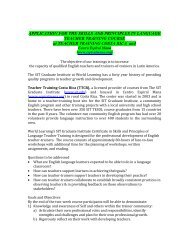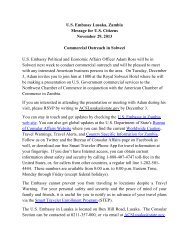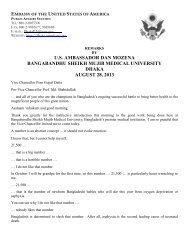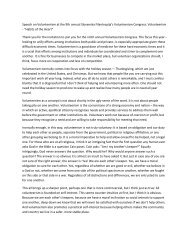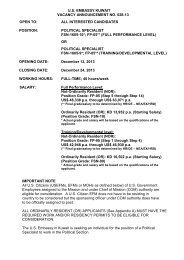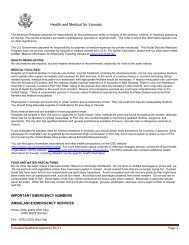World Environment Day
World Environment Day
World Environment Day
Create successful ePaper yourself
Turn your PDF publications into a flip-book with our unique Google optimized e-Paper software.
The United Nations <strong>Environment</strong> Programme<br />
The United Nations <strong>Environment</strong><br />
Programme (UNEP) theme for this year's<br />
<strong>World</strong> <strong>Environment</strong> <strong>Day</strong> celebrations is<br />
Think.Eat.Save.<br />
Think.Eat.Save is an anti-food waste and<br />
food loss campaign that encourages you to<br />
reduce your foodprint. According to the UN<br />
Food and Agriculture Organization (FAO),<br />
every year 1.3 billion tonnes of food is<br />
wasted. This is equivalent to the same<br />
amount produced in the whole of sub-<br />
Saharan Africa. At the same time, 1 in<br />
every 7 people in the world go to bed<br />
hungry and more than 20,000<br />
children under the age of 5 die daily<br />
from hunger.<br />
Given this enormous imbalance in lifestyles<br />
and the resultant devastating effects on the<br />
environment, this year's theme –<br />
Think.Eat.Save – encourages you to become<br />
more aware of the environmental impact of<br />
the food choices you make and empowers<br />
you to make informed decisions.<br />
While the planet is struggling to<br />
provide us with enough resources to<br />
sustain its 7 billion people (growing<br />
to 9 billion by 2050), FAO estimates that<br />
a third of global food production is either<br />
wasted or lost. Food waste is an enormous<br />
drain on natural resources and a<br />
contributor to negative environmental<br />
impacts.<br />
This year's campaign rallies you to take<br />
action from your home and then witness<br />
the power of collective decisions you and<br />
others have made to reduce food waste,<br />
save money, minimize the environmental<br />
impact of food production and force food<br />
production processes to become more<br />
efficient.<br />
If food is wasted, it means that all the<br />
resources and inputs used in the<br />
production of all the food are also lost. For<br />
example, it takes about 1,000 litres of<br />
water to produce 1 litre of milk and<br />
about 16,000 litres goes into a cow's<br />
food to make a hamburger. The<br />
resulting greenhouse gas emissions from<br />
the cows themselves, and throughout the<br />
food supply chain, all end up in vain when<br />
we waste food.<br />
In fact, the global food production<br />
occupies 25% of all habitable land<br />
and is responsible for 70% of fresh<br />
water consumption, 80% of<br />
deforestation, and 30% of greenhouse<br />
gas emissions. It is the largest single<br />
driver of biodiversity loss and land-use<br />
change.<br />
Making informed decision therefore means,<br />
for example, that you purposefully select<br />
foods that have less of an environmental<br />
impact, such as organic foods that do not<br />
use chemicals in the production process.<br />
Choosing to buy locally can also mean that<br />
foods are not flown halfway across the<br />
world and therefore limit emissions.<br />
So think before you eat and help save our<br />
environment!<br />
Source:<br />
http://www.unep.org/wed/theme/<br />
Mongolia, which is prioritizing a Green Economy shift across its big economic sectors such as mining and promoting environmental awareness<br />
among youth, is to host this year's <strong>World</strong> <strong>Environment</strong> <strong>Day</strong> (WED) celebrations on June 5,<br />
See more at http://www.unep.org/wed/news/hostcountry2013.asp#sthash.WrLMPaUm.dpuf:<br />
UNEP – Think, Eat, Save A-Z<br />
http://www.unep.org/wed/A-Z/<br />
UNEP – Food Waste Facts<br />
http://www.unep.org/wed/quickfacts/<br />
e-infopack: Think.Eat.Save Page: 2


